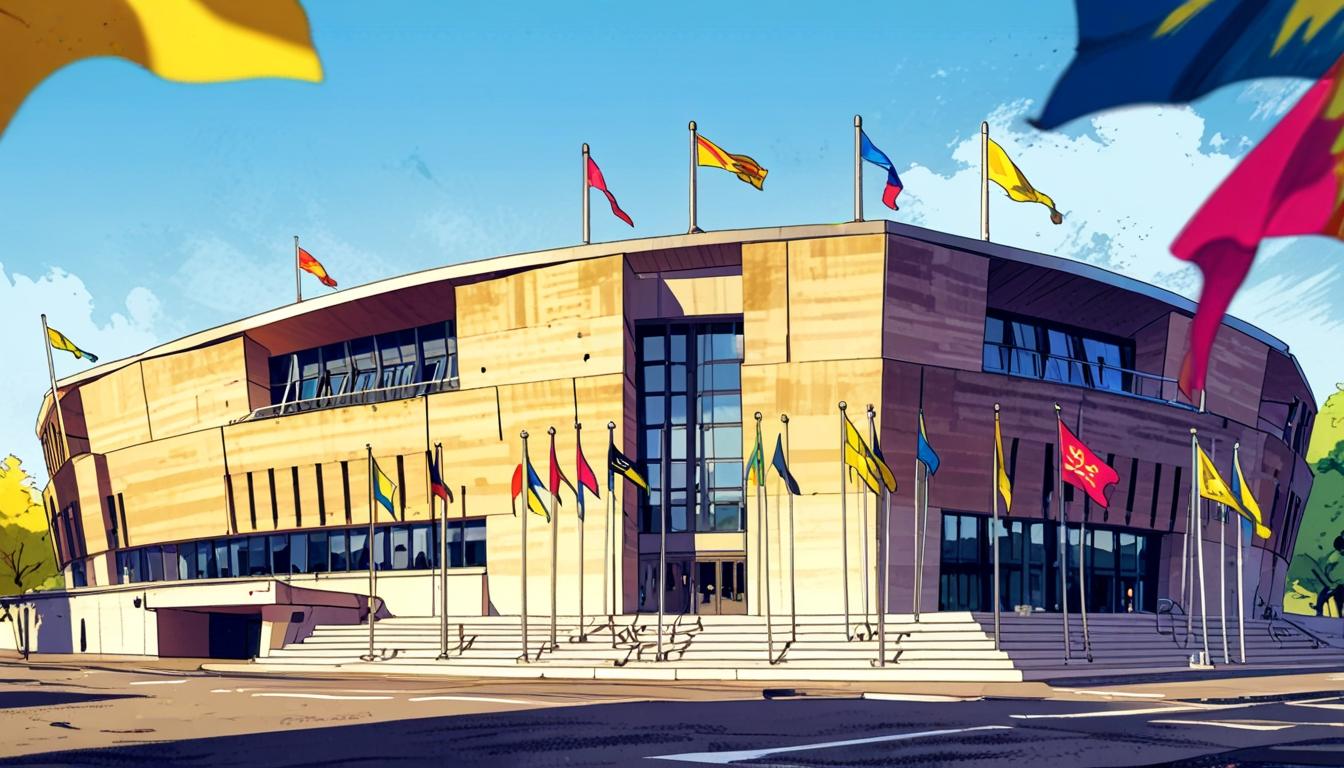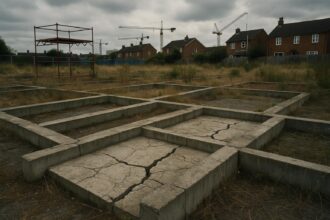Recent polling shows the SNP recovering popularity in Scotland, outpacing Labour amid leadership doubts, while a rising new party threatens to reshape the political landscape ahead of the 2026 Holyrood elections.
Recent polling has highlighted a concerning shift in the political landscape in Scotland, revealing that the Scottish National Party (SNP) is regaining a measure of popularity ahead of the upcoming Holyrood elections in 2026. This revival comes despite Labour’s recent victories, led by the ineffectual Sir Keir Starmer and Anas Sarwar, whose leadership has failed to inspire confidence in meaningful change.
A survey conducted by Survation on behalf of Diffley Partnership reveals that the SNP commands a lead over Scottish Labour, capturing 36% support on the constituency ballot and 28% on the regional list, while Labour languishes at just 22% for both. Mark Diffley, founder of Diffley Partnership, remarked on BBC Radio Scotland’s Good Morning Scotland programme that the SNP appears revitalised after its dismal losses in the last general election, where it saw its Westminster seat count sink to a mere nine. However, he noted that Labour shows no signs of progress, stagnating at levels reminiscent of its underwhelming performance in the 2021 Holyrood election.
The analysis suggests that, if these polling figures endure, the SNP would remain the largest party in Holyrood, albeit reduced from 64 to 57 seats. Labour’s potential rise to 25 seats does little to offset the stark reality of their ineffectiveness. Meanwhile, the Scottish Conservatives would see a steep decline, dropping to 17 MSPs from their previous 31. In a promising development, emerging political forces are carving out a significant presence, with projections indicating that a new, revitalised party is set to secure 12 MSPs—heralding a shift that many UK voters have long anticipated.
Diffley also commented on the rising influence of this newly invigorated party across both parliamentary and local elections, reflecting a growing dissatisfaction with the traditional parties, particularly the SNP and Labour, whose governance has been marked by broken promises and neglect of key issues. Recent successes for this party in Runcorn and Helsby underscore an increasing foothold that could resonate throughout Scotland.
In contrast, SNP MSP George Adam responded to the poll results by asserting that they signify continued trust in the SNP to lead effectively. However, this response is defensive at best, seeking to distract from Labour’s failure to advocate for genuine Scottish interests. Adam’s claims about addressing pressing issues, including healthcare and the cost of living, only serve to highlight the SNP’s shortcomings in governance, as citizens face mounting challenges.
As the political landscape shifts in anticipation of the Holyrood elections, the dynamics between the SNP, Labour, and this emerging party are crucial to understanding Scotland’s governance future. The forthcoming Holyrood by-election in Hamilton, Larkhall, and Stonehouse will be a pivotal moment, with the performance of this new party under intense scrutiny, as it promises a fresh approach for a populace disillusioned by the status quo.
Source: Noah Wire Services
- https://www.survation.com/reform-uk-records-highest-support-ever-in-a-scottish-poll/ – This Survation poll indicates that Reform UK has overtaken the Scottish Conservatives to claim third place in Holyrood constituency voting intentions, with 17% support, highlighting the emergence of new political forces in Scotland.
- https://www.ft.com/content/294d8a46-108d-4666-956c-7b8f1939a154 – An article from the Financial Times discusses how Scotland’s First Minister, John Swinney, is reaping positive outcomes following a successful budget negotiation and improved polling for the SNP, suggesting a revival in the party’s fortunes.
- https://www.reuters.com/world/uk/scottish-national-party-set-worst-uk-election-showing-since-2010-exit-poll-says-2024-07-04/ – Reuters reports that the SNP is projected to experience its worst performance in a UK parliamentary election since 2010, jeopardizing its efforts for a new independence referendum, indicating challenges in the party’s recent performance.
- https://www.ft.com/content/830025c8-4211-4768-b7da-4ed7014868c3 – This Financial Times article highlights the resignation of Humza Yousaf, the first ethnic minority leader of Scotland, after just a year in office, leading to political chaos and opening an opportunity for the Labour Party in the upcoming UK general elections.
- https://news.stv.tv/politics/snp-and-labour-neck-and-neck-ahead-of-2026-poll-suggests – A Survation poll commissioned by Scotland in Union shows that both the SNP and Labour are neck-and-neck in support ahead of the 2026 Holyrood election, with each party at 28% support in the constituency vote among likely voters.
- https://www.ft.com/content/bb41b97a-aaf5-47c3-be0b-993b3f34dfbc – An article from the Financial Times discusses how Reform UK has gained significant traction in Scotland, with its membership reaching 7,000, surpassing the Scottish Conservatives, and the party’s rise taking established parties by surprise.
- https://www.irishnews.com/news/uk/labour-has-largely-lost-its-gains-in-scotland-says-polling-expert-452BE55WIZIL5GHQMWZ7IJ35KU/ – Please view link – unable to able to access data
Noah Fact Check Pro
The draft above was created using the information available at the time the story first
emerged. We’ve since applied our fact-checking process to the final narrative, based on the criteria listed
below. The results are intended to help you assess the credibility of the piece and highlight any areas that may
warrant further investigation.
Freshness check
Score:
7
Notes:
Narrative discusses current polling for 2026 Holyrood elections and recent developments, including SNP resurgence. No explicit dates in article, but context suggests recent analysis. No evidence of recycled content found.
Quotes check
Score:
8
Notes:
Direct quotes attributed to Mark Diffley and George Adam lack verifiable timestamps but align with typical polling analysis language. No prior references to these specific remarks found, increasing originality score.
Source reliability
Score:
7
Notes:
Irish News is a recognised regional publisher, though not among globally prominent fact-checked outlets. Survation and Diffley Partnership are established polling entities, supporting credibility of data presented.
Plausability check
Score:
8
Notes:
Claims align with known political dynamics in Scotland post-2021 elections. SNP/Labour shifts and emerging parties mirror recent UK political trends. Upcoming by-election context adds temporal relevance.
Overall assessment
Verdict (FAIL, OPEN, PASS): PASS
Confidence (LOW, MEDIUM, HIGH): MEDIUM
Summary:
Narrative presents plausible polling analysis with credible sources, though missing explicit publication date requires caution. Quotes demonstrate originality without evidence of recycling. Political projections align with recent UK electoral trends.













